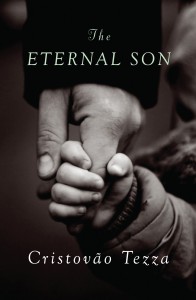Published by Scribe Publications 29 August 2013
224pp, paperback, £8.99
Reviewed by Shirley Whiteside
Cristovao Tezza is a multi-award-winning Brazilian novelist. When his son was born with Down ’s syndrome, Tezza found that the only way he could write about his feelings was through a third-person narrator in novel form. It makes for a strange hybrid of novel and autobiography, perhaps the label of fiction giving the author license to be more honest about his reactions to his own son’s birth.
We meet the father – only Felipe, the son, is given a name – as he waits in hospital for his child to be born. He passes the time fantasizing about all the thing he will do with his child, how the very fact of being a father will change society’s view of him, make him more serious, more worthy. He imagines himself teaching his child about the world and his pride in displaying his clever progeny to his friends and family. It is an entirely self-centred fantasy and not altogether surprising for a man who says he wants to be a published writer but seems to be more comfortable being a perpetual student, supported by his patient wife.
The grim-faced doctors impart the news of Felipe’s Down’s syndrome but the father cannot, will not, take it in.
‘He refused to advance on the timeline, struggling to stay in the second before the revelation, like a cow bucking in the narrow aisle of the slaughterhouse.’
The father comforts himself with the thought that Down’s syndrome children often have short lives and even wishes the child dead as he lies innocently in his mother’s arms. He would rather be a tragic father who lost his son within a few years than father to a living child with this disability. The mother is barely mentioned, Tezza saying in interviews that he wanted to protect his wife; instead he maps the relationship between a man-child and a child becoming a man of twenty-five. The father learns from his growing son and does make some progress, but there is mention of the father being autistic which would preclude any major emotional changes. Even bearing this in mind, the father is not a likeable character and one wonders whether Tezza is punishing himself for his own initial shame at having produced a Down ’s syndrome child. There seems no reason why the fictional father should have little or no redeeming qualities as if Tezza wants to make sure we never really sympathize with his plight. If this is an accurate portrayal of Tezza’s reaction to his own child’s birth it seems honest to the point of self-immolation.
The translation sometimes follows the grammatical structure of Portuguese and it takes a few pages to adjust to the rhythm of the narrative. Tezza has a florid style that only just steers clear of purple prose but he has an eye for the telling detail and his metaphors and similes avoid cliché. This is not an easy read and the temptation to throw the book at the wall as the father once again demonstrates his overweening self-pity is strong. However it is worth sticking with, as Felipe’s small triumphs light up the grim story and his enjoyment of the here now with no thought of yesterday or tomorrow is a lesson we could all learn.

